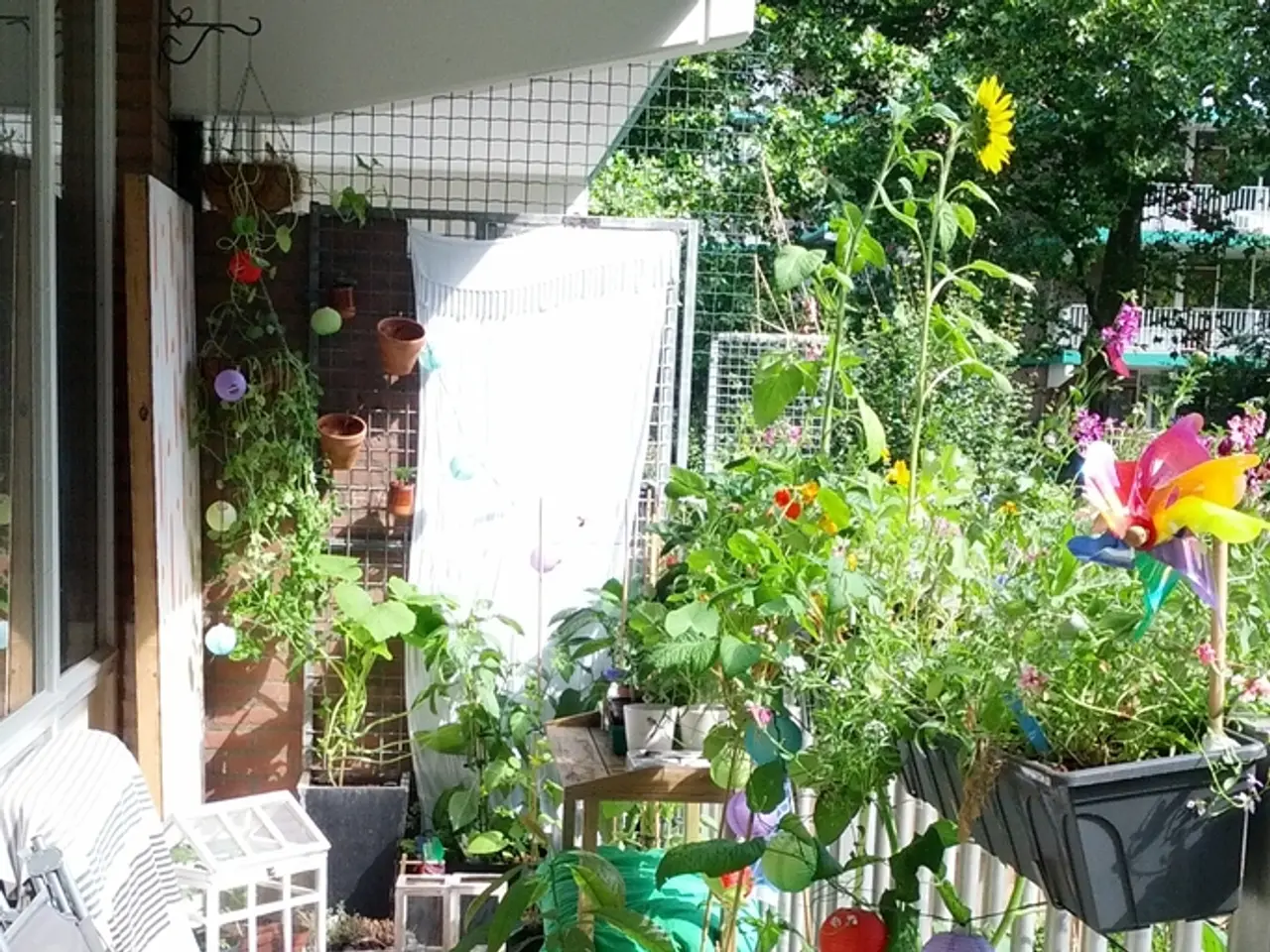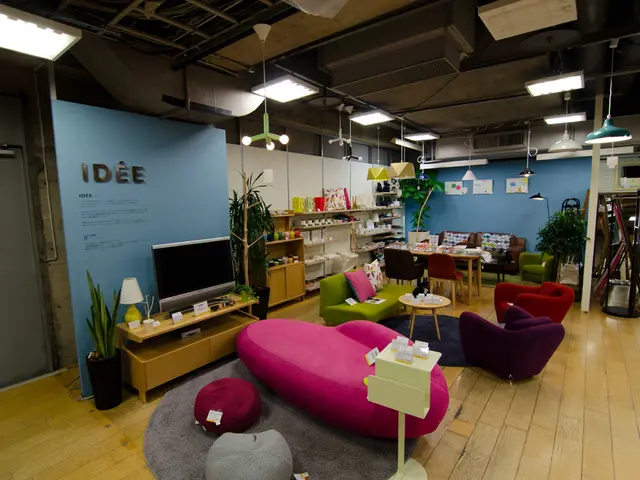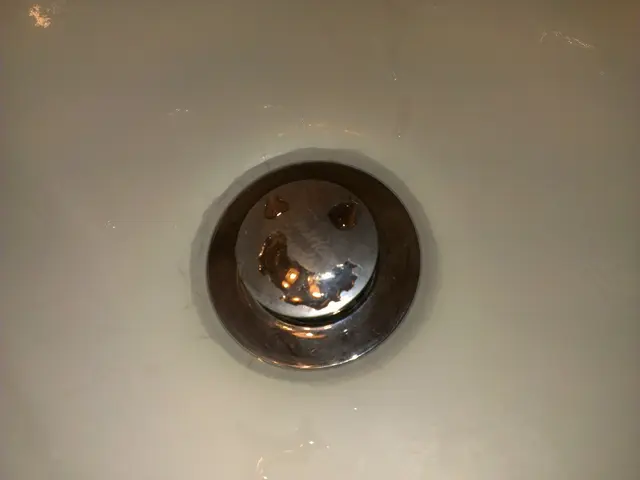A significant number of individuals purchase a dwelling and commence renovation work right away
UK Homeowners Embrace Energy-Efficient Renovations Amidst Challenges
In the ever-evolving UK property market, homeowners are focusing on energy efficiency, smart home integration, flexible living spaces, and natural/eco-friendly materials and aesthetics when renovating their homes. These trends, prominent in 2025, aim to reduce ongoing costs, increase comfort, future-proof living, and enhance property saleability. However, soaring material and labor costs, stricter planning permissions, and lengthy delays present significant challenges.
According to recent data, building material costs have risen by more than 37% since 2020, with insulation and concrete over 60% more expensive. Labor costs have also increased, with electricians' fees up by 14.4% and scaffolders by 9.3%. Despite these economic pressures, approximately 20% of homeowners still planned renovation projects in early 2025.
Popular renovation projects include energy efficiency upgrades, such as loft and wall insulation, double/triple glazing, heat pump installations, and improvements to Energy Performance Certificates (EPCs). Smart home features, like smart thermostats, sensor lighting, and programmable heating/lighting zones, are also in demand, aiming to reduce energy use and add convenience.
Biophilic design and natural materials, like living greenery walls, natural finishes, and daylight maximization, are being adopted to promote wellbeing and a connection to nature. Flexible living spaces are created through multifunctional rooms featuring Murphy beds, adaptable cabinetry, and dedicated zones for hybrid work or dual uses.
Decor trends are shifting away from cool greys and whites towards warm earthy tones such as terracotta, toffee, and chocolate brown, often with textured and matte finishes for a cozy, lived-in feel. Bold jewel tones are used via colour drenching for dramatic, intimate spaces.
Despite the challenges, the market's resilience is noteworthy, with strong demand for new mortgages and growth in lending, as indicated by Halifax. The Bank of England's Monetary Policy Committee (MPC) reduced the base rate by 0.25%, to 4.5%, which could potentially make mortgages more affordable and prompt lenders to sharpen their offerings.
Meanwhile, the housing market has seen a surge in demand, with house prices rising by 0.7% in January, pushing the average property value to a new record high of £299,138. Cheaper improvements like painting and decorating, garden revamp, new bathrooms, new kitchens, and new boilers are high on the list of priorities for homeowners.
Some of the demand in the housing market may have come from first-time buyers eager to complete transactions before the end of March due to an upcoming stamp duty increase. It's worth noting that homes listed for sale during January and February tend to find a buyer in 51 days, closely followed by March and April with 52 days.
Mark Harris, chief executive of mortgage broker SPF Private Clients, questions when the next rate cut will occur, while Jonathan Hopper, CEO of Garrington Property Finders, believes the prospect of cheaper mortgages will encourage thousands of would-be buyers.
In a surprising twist, Zoopla's survey reveals that 41% of homeowners who bought a modern property made improvements within their first two years. Few homeowners are content with living in a house as it is and prefer to make improvements.
In conclusion, UK homeowners in 2025 favor energy-efficient, smart, flexible, and natural home improvements motivated by cost-saving, comfort, and future-readiness. However, they contend with significant cost inflation and stricter planning environments.
In the face of rising material and labor costs, 20% of UK homeowners still planned to invest in renovation projects in early 2025, focusing on energy-efficient upgrades and smart home features. This lifestyle preference reflects a home-improvement trend that prioritizes energy efficiency, smart home integration, flexible living spaces, and natural/eco-friendly materials for cost saving, enhanced comfort, future-proof living, and increased property saleability. Despite the challenges, homeowners remain determined to make improvements to their homes, particularly in the home-and-garden sector, with garden revamps, new bathrooms, kitchens, and boilers high on the priority list.





